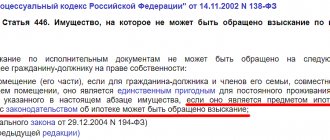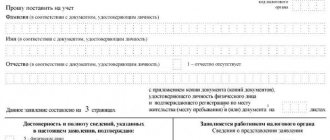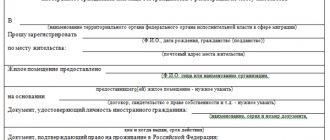When may it be necessary to search for property?
Quite often there is a need to find all of a person’s property. Most often this happens during a divorce and division of marital property, when you need to find money, real estate, etc. wife or husband. The second common case is a search for the property of a debtor who, for example, was brought to subsidiary liability (former general director, bankrupt company, etc.). There are also many other situations in which it is necessary to search for property, but this does not affect the essence of the search. It is worth noting that if any dispute with the prospect of collection is just emerging, then it is especially important to find the property in time, in order to timely seize it, we recommend that you take up this issue in advance. It is not uncommon for a husband to give money to his wife in cash and she deposited it into some bank account of her own, but the husband doesn’t know which one exactly (he doesn’t even know in which bank the wife’s account is opened) and upon divorce the question arises - “what? where's the money? Which bank should I look for accounts and money in?”
Information about all types of property
It is possible to find out what property belongs to an individual using the Federal Tax Service database. This institution accumulates data on all types of property.
In addition to a passport, which is necessary to request data from all institutions, when contacting the tax service you need a TIN, as well as a document confirming the right to receive such information. If a person does not belong to one of the above categories of persons, then he will not be able to find out about the person’s property.
TOTAL: What conclusion can be drawn after reading all this information? An independent search gives virtually no chance of obtaining the necessary information. Is there any way out of this situation?
What property and how do creditors look for in bankruptcy and subsidiary?
In the course of procedures related to the bankruptcy of legal entities (and individuals too) and bringing to subsidiary liability, based on practice, we can conclude that Lenders make requests only to the 10 largest banks in the country, requests to the traffic police regarding the availability of vehicles funds and to Rosreestr regarding real estate. Lenders rarely search for other assets, such as stocks and bonds or property abroad, believing that this is very difficult or even impossible. However, we categorically cannot agree with this, for the reasons stated below.
Where to start searching for assets of interest?
So, not forgetting that in addition to the property of the Debtor himself, a penalty can be imposed on half of the property of the spouse, we determine the list of what we need to look for:
- Cash in bank accounts and deposits (everything except cash);
- Real estate (houses, apartments, buildings, premises, garages, land, and not only in the Russian Federation);
- Shipping facilities (yachts, boats, ships, etc.);
- Self-propelled vehicles (ATVs, snowmobiles, etc.);
- Securities, which include shares, bonds, deposits in various investment instruments, such as S&P 500, Sberbank ETF, etc.;
- Gold bars (and not only gold), coins, jewelry (what is usually stored in safe deposit boxes).
Knowing our debtor, we must think carefully about which of the above a person could theoretically own or have owned over the last 3-5 years (transactions during this period are contestable, if something was sold, everything can be reversed) and outline a direction for the search.
We must not forget that half of the spouse’s property is also in the zone of ours, as collectors of interests, and therefore it is necessary to find out whether the debtor is in a registered marriage now, or over the past 3 years. You can find out whether a person is married now or previously in the following ways:
- send a lawyer/court request to the registry office at the place of registration of the debtor
- send a lawyer/court request to the registry office at the place of all old registrations of the debtor
- send a lawyer/court request to the MFC at the place of registration of the debtor
- in the case of Moscow, it makes sense to apply with a similar request to the Main Directorate of Internal Affairs of the Ministry of Internal Affairs of the Russian Federation for Moscow
*there is no single database of registered marriages in the Russian Federation; you need to search manually.
The procedure for conducting an executive search
The grounds for introducing a search will appear when the bailiff initiates proceedings and carries out initial actions. To initiate a case, the bailiff needs to receive the claimant’s application, and then the writ of execution itself. Also, the claimant may ask the court to transfer documents to the FSSP after they enter into force.
Initiation of proceedings
The FSSP employee is obliged to make a decision on the documents received from the claimant within 3 days. If there are no grounds for opening proceedings, the applicant is informed about this. Naturally, in this case the debtor is not in danger of being wanted.
If the documents comply with the norms of Law No. 229-FZ, then the bailiff is obliged to:
- initiate enforcement proceedings;
- draw up a resolution, enter information into the Data Bank on the FSSP portal;
- send a copy of the decision to the parties.
At this stage, search activities have not yet been carried out. The general information about the defaulter specified in the creditor’s application and the writ of execution will be included in the resolution by the FSSP employee. The actual location verification and property identification will begin later.
Checking information about the debtor and property
A bailiff can collect debts or fulfill another requirement by a court decision only in interaction with the defendant (debtor). After opening a case, the bailiff carries out the following activities:
- makes a request to the Ministry of Internal Affairs about the place of registration of the defaulter (the request is made at the address indicated in the writ of execution or court order);
- requests information from the Unified State Register of Real Estate, the traffic police database on the presence or absence of real estate and vehicles;
- goes to the place of residence of the defaulter, checks the availability of property, draws up an inventory (act);
- seizes assets and transfers them for safekeeping to the debtor or another person.
At this stage, the bailiff may find out that the defaulter does not actually live at his registered address, and understand that his whereabouts are unknown. This will be the basis for introducing a search, but not for property, but specifically for the debtor himself, if the actions of the bailiff did not help to find the real address.
A FSSP specialist will search for property in the following cases:
- if there is no information about the whereabouts of the debtor;
- if, as a result of inquiries, during an inspection of a residential or other premises, no assets were found that could be sold;
- if the value of the identified property is not enough to pay off all debts;
- if the bailiff has not discovered the thing or object that he is obliged to seize and transfer to the recoverer by court decision. For example, the debtor goes through the registration database as the owner of a car, but the bailiff cannot find this car.
In practice, the search for property by bailiffs may not be carried out if the debtor has a stable job and a constant source of income from which he can pay off the debt.
It is much easier to seize the property that was immediately found during a home inspection and send documents for retention to work. Since the collector is interested in collecting the debt as quickly as possible, he can demand a search if he has information about other property of the defaulter.
Search warrant
The search for a debtor in enforcement proceedings or his assets can be carried out at the initiative of the FSSP or at the request of a creditor. According to Art. 65 of Law No. 229-FZ, the obligation to initiate search activities arises:
- if the debt exceeds 10 thousand rubles, and this debt is awarded to the state or municipality (for example, these may be administrative fines);
- if we are talking about non-payment of alimony (the amount of the claim in this case does not matter);
- if compensation is sought for damage to life or health, damage from crimes;
- if the debtor was sentenced to compulsory labor or imposed a fine for committing a crime.
If the bailiff does not take the initiative and does not initiate a search for the listed reasons, the collector may demand this. To do this, an application is submitted, which the FSSP considers within 10 days. If the bailiff unreasonably refused to search or ignored the requests of the claimant, you can file a complaint.
The bailiff himself decides to what extent to declare a search. He can search only for the defaulter, or only for his property, or use both options at once. For example, to collect current alimony payments, you need to find the payer and his place of work. If the debtor has no income, information about his accounts and assets is needed to begin repaying the debt.
Ekaterina Uryvaeva
Bankruptcy Lawyer for Individuals
The law lists several situations when the bailiff has the right to start a search:
- if it is impossible to enforce a decision with non-property claims without personal presence (for example, if the defendant must prepare and post a public refutation after a court decision on libel);
- if the debt exceeds 10 thousand rubles, and the claim is of a property nature.
In fact, this allows you to start a search for any requirements if their total amount is above 10 thousand rubles. If the bailiff himself does not decide to start a search, the creditor has the right to submit such an application.
Let us note once again that in these situations the FSSP officer has the right, and not the obligation, to conduct a search. If the bailiff does not see the need for this, he may refuse the claimant. An appeal will help to finally resolve this issue.
The search for debtors by bailiffs is announced by decree. It states:
- general information about the defaulter known at the time the resolution was issued;
- production number, the essence of the claimant’s demands;
- the period for which the search is announced;
- list of events (later it may be supplemented);
- a list of instructions that will be sent to the services of the FSSP and the Ministry of Internal Affairs.
The resolution is approved by the senior bailiff of the FSSP department. After this, a copy of the document is sent to the parties. If the real location of the defaulter is unknown, the document will be sent to the last known address.
Carrying out search activities
Search activities can be carried out by the bailiff himself, as well as by employees of other departments, if they are given such instructions. For example, according to a search warrant, bailiffs can give instructions to specialists from the FSSP and the Ministry of Internal Affairs in other regions other than where the case is taking place.
To search for property, the following activities can be carried out:
- requests to any public and private structures, databases;
- surveys of persons who may have information about the defaulter and his property;
- working with personal data;
- checking citizens' identity documents;
- inquiry;
- surveys of sites, real estate objects;
- inspection of property (real estate, transport, other movable property);
- personal identification;
- operational-search actions with the involvement of employees of the Ministry of Internal Affairs.
The list of actions that will be carried out to find the defaulter depends on the conscientiousness of the bailiff. Therefore, the claimant has the right to get acquainted with the progress of the proceedings and file complaints if the FSSP is inactive.
The law allows the claimant to submit documents and information that may help in the search. This may also be materials obtained during private detective activities. If the bailiff refuses to accept documents and information without substantiating the reasons, the claimant has the right to file a complaint.
What threatens the debtor
If the debtor deliberately tries to escape and hides property, he may face criminal or administrative liability.
For example, for deliberate evasion of debt repayment, a punishment may be imposed under Art. 177 of the Criminal Code of the Russian Federation. In this case, the amount of debt must exceed 2 million 250 thousand rubles.
For evasion of alimony payments, liability arises according to special provisions of the law. If there is a delay of at least 2 months, the violator will first be held accountable under the Code of Administrative Offenses of the Russian Federation. If he continues to evade payments, a criminal case may be opened in another 2 months.
If the defaulter learned about the claims of the FSSP and the creditor only during the search, he can avoid liability. To do this, you must provide information about your address and other data. After this, the bailiff will begin enforcement actions as usual.
What happens if or when the property is found?
As soon as the property is identified, the bailiff will be able to seize it and begin selling it. The search materials must clearly confirm that the found things, objects and objects belong to the defaulter personally. Seizure can be placed on any assets.
Sales will be carried out through a specialized organization or at auction. In Art. 446 of the Code of Civil Procedure of the Russian Federation there is a list of objects and things that cannot be sold. If an FSSP employee includes assets from this list in the inventory for sale, the debtor will be able to file a complaint.
After the sale, the proceeds will be used to pay the claimant and repay the enforcement fee. The debtor also pays the costs incurred during the search.
Remember that it is very dangerous to keep funds in bank accounts if enforcement proceedings have been initiated against you. There are no banks in Russia that ignore requests from bailiffs. Keep in mind the fact that creditors may also have information about where you keep your money. After all, you yourself often inform about the presence of accounts and deposits in banks in your loan application.
What threatens the debtor if the bailiffs do not find the property?
If the debtor has nothing to pay, and the search for property does not yield results, the following consequences occur:
- the bailiff has the right to extend search activities if there is such a need;
- if execution is impossible due to lack of property, the FSSP officer will complete the proceedings and send a resolution to the parties;
- If the alimony defaulter is not found within a year, the bailiff is obliged to notify the collector of the possibility of recognizing the debtor as missing (this gives the right to receive a survivor's pension).
If the defaulter's financial situation subsequently changes, the proceedings may be resumed. This can be done by the bailiff himself, or the claimant has the right to submit an application.
Termination of proceedings due to lack of property may be beneficial for the debtor. He will be able to apply to the MFC and go through out-of-court bankruptcy. You can check the fact that the case was completed due to the lack of property from the resolution, upon request to the FSSP, through the Data Bank on the bailiffs website. You can learn more about bankruptcy from our lawyers.
How and where to look for a person’s real estate located in Russia?
Finding the Debtor's real estate located in the Russian Federation is quite simple. You need to submit a lawyer/court request to Rosreestr, where you can request an extract from the Unified State Register of Property of an individual. You can also contact the Federal Tax Service, the tax office has information about the debtor’s property in the last tax period (1 year). Rosreestr will give a detailed answer from which you can find out literally everything - what real estate you currently own, and the extended statement will also contain all the information about the property for your entire life. If a property (according to an extract from the Unified State Register) has been removed from ownership for a period of less than 3 years, it is important not to forget to send an additional request for a specific property. Having in hand (available in the extract from the Unified State Register) the cadastral number of the object, in Rosreestr you can find out on the basis of which it was relinquished from ownership. If you see that this event took place on the basis of some strange gift agreement, a new search thread already appears - who was given the expensive real estate? Perhaps it is possible to prove that the donee is an affiliate and reverse the transaction?
Loshakov Sergey
Leading lawyer of the bar
Sergey Valerievich is an active lawyer of the Moscow Bar Association with extensive judicial practice and extensive experience. Fill out the application in the feedback form and receive a free initial consultation with a specialist.
How to find out whether an individual has real estate through the Federal Tax Service?
The duties of the tax inspectorate include assessing property taxes for individuals. persons according to data coming from Rosreestr. As soon as the registration procedures are completed, and the citizen becomes the full owner of the plot, building, or living space, he immediately acquires the status of a taxpayer.
The Federal Tax Service has data on real estate as an object of taxation. When calculating tax, inspectors are guided by its cadastral value. Receipts sent to payers indicate the inventory number of the item. You can use it to find out about the availability of real estate.
Officially, the Federal Tax Service Inspectorate cannot find out the availability of real estate of an individual - this authority has a different profile and functions. The above information can confirm the existence of property, but indirectly - without an address or other characteristics. In addition, it is impossible to obtain it legally - you will have to establish connections and obtain data through friends.
How and where to look for a person’s real estate located abroad, in another country?
Surprisingly, this process can be even simpler than with real estate in Russia. A feature of the countries of Europe, the USA, Canada and Australia is their real fight against corruption, and therefore all transactions in these countries are as transparent as possible, and anyone can get access to information about them in any amount (you will even be given a copy of the purchase and sale agreement ). All information is obtained practically online without leaving the monitor for several hours. There is no point in providing links to all registries because... There are too many of them and they can be Googled in 2 minutes. For example, let’s look at the Spanish registry - https://www.registradores.org and the German registry - https://www.grundbuchamt.com
Please note that the surname in the foreign registry will correspond to the surname in the international passport in English; the spelling is sometimes different from Russian and can be completely unexpected. In this regard, if you have doubts about the writing, it is recommended to contact the Ministry of Foreign Affairs with a request, they will give an accurate answer.
As part of the search for property located in Europe or any other country (provided that you do not know for sure whether it exists at all, but assume), before requesting data from the registers of foreign countries (these requests are subject to a fee), a good action would be to send a request to the Ministry of Foreign Affairs in order to find out which countries, with what frequency and duration of visits, the debtor has visited over the past 10-15 years and continues to visit now. Having this data, we can make an assumption as to which country to begin a more thorough search for foreign real estate.
How to find a person’s movable property – cars and motorcycles?
The easiest and most reliable way is a lawyer/court request to the State Traffic Safety Inspectorate of the Russian Federation. The database of vehicles in the country is unified, centralized, and you will very quickly receive all the information about what vehicles an individual currently owns or has owned over the past 3 years. Don't forget about the Debtor's spouse's vehicles. Information about the owners of self-propelled vehicles (ATVs, snowmobiles, etc.) is available from Gostekhnadzor.
The period for consideration of citizens' appeals, as well as attorney and court requests, is 30 days. Plus postage time. Don't forget to take this fact into account when planning your case.
How to find a yacht, boat, or other vessel that belongs to a person?
In the Russian Federation, GIMS (State Inspectorate for Small Vessels) keeps records of all shipping vehicles, which include yachts, boats, etc., up to 20 meters long. But data on the owners of yachts over 20 meters in length and ships (barges, pleasure river trams, dry cargo ships, ferries, tankers, etc.) used for commercial purposes is contained in the State Ship Register (GSR). You can also obtain information about the owners by sending a lawyer or court request to the appropriate department.
How to find out what securities – stocks and bonds – a person (debtor) owns?
The responsibility for maintaining records of securities (shares, bonds, etc.) in Russia is assigned to the Depository, and therefore there is no single database of securities owners. However, we do not have many Depositories; there are only about 400 of them official and accredited. Supervision and accreditation of Depositories is carried out by the Central Bank of the Russian Federation, and a comprehensive list of Depositories is available on the official website of the Central Bank of the Russian Federation. Therefore, in order to find all the shares that, for example, your spouse owns, you will have to prepare 350 lawyer requests and send them to each Depository, within 30 days an official response will come from each of them and everything will become clear. Searching for securities is not so much a complex process as it is monotonous; it is quite possible to do it.
Scheme for storing data on security holders in the Russian Federation
Benefits of cooperation
Here are the main advantages when ordering a search service from us:
- simplicity of registration - without many different documents and queues;
- reliability of information - we seek the necessary information only with the help of official sources;
- speed - you receive a statement within 2-4 days;
- convenience - the certificate is sent by email, contains detailed information and is accompanied by comments;
- guarantee - we will refund your payment if we do not find the information you need.
Need to find a person's property? Fill out the form on the website, click the “Order” button, and wait for the manager to contact you.
How to find out which bank, what accounts and deposits a person has and how much money is in them?
Unfortunately, there is no unified database of accounts and deposits of individuals in Russia. Therefore, the search for accounts, deposits and money in the bank accounts of the husband or wife (any Debtor) will have to be done manually. At the beginning of 2021, there are 442 banks in the Russian Federation. Accordingly, if there are no assumptions or reliable data at least about which bank the Debtor has the account of interest, you will have to prepare and send 442 attorney requests, receive answers after 30 days and study the received documents. If your case is already being considered by the court, then you can, of course, ask the court to make the appropriate requests, but most likely the court will refuse you this. That is why it is worth looking for money in banks in the accounts and deposits of individuals, for example, during a divorce, together with a lawyer a little in advance and providing the court with all the information yourself. If the need for such a search for money arose during the bankruptcy procedure, then the financial (arbitration) manager also has the right to make the above requests to banks.
To simplify the search for the bank in which a person has an account or deposit, you can also send a lawyer’s request to the Pension Fund of the Russian Federation, where you can find out which employer makes pension contributions in favor of the individual. This way you can find out where the Debtor is employed. Knowing the place of work, you can apply a little “social engineering” - contact the Debtor’s employer under the guise of a potential client (request a commercial proposal, etc.), and receive from him the details for paying the invoice. In these details you will immediately see in which bank the company has a current account. After this, with a high degree of probability, you can make the assumption that your Debtor receives his salary through the bank where the employer has a current account and, first of all, send an official legal request to this bank.
How to find gold bars, valuable coins, and other valuables that belong to a person?
Storing assets in precious metals and other valuables is the most reliable option. It is indeed extremely difficult to find such property from a person. Even if it is stored in bank safe deposit boxes, the bank, at the request of a lawyer or court, will not provide information about the contents of the safe deposit box since it itself does not have such information. By sending inquiries to all banks, you can only find out whether the Debtor has safe deposit boxes in his name. If such information is obtained during enforcement proceedings, then with due pressure the bailiff has the right to open the Debtor’s safe deposit box and inspect its contents.
What does the tariff for extracting property from individuals depend on?
InfoPoisk offers two types of statements on citizens' property.
- From the Federal Tax Service. Contains general information about the citizen’s possession of property. Cost – 5,000 rubles. Execution time – 2 working days.
- From the Federal Tax Service and Rosreestr. It is a detailed list of real estate indicating addresses, cadastral numbers, cost, area, layout and purpose. Such an extract costs 10,000 rubles, and you will have to wait 4 working days for it.
Submit your application through the website today - in two days you will already know exactly what your neighbor actually owns.
“Gray” methods of searching for property of an individual.
On Telegram and on the Internet in general, there are many offers of services for the so-called “breakthrough”. It is not correct to provide links to such resources, since the ways to obtain information there are not clear and they have nothing to do with legality... and it will not be difficult to find them yourself. Whether or not to use such “gray” services is everyone’s choice; criminal liability for this is provided only for the person who provides these services; the recipient of the service does not risk anything. But it is worth remembering that information obtained in an unofficial way will be assessed in court as unreliable, so even if you have already received all the necessary data, it must be legalized and only then used in the courts, the FSSP and other government agencies .
Do you have a question?
Ask your lawyer and get a free initial consultation on the issue!
How to find out about an individual’s real estate through info-poisk.com?
The info-poisk.com service offers to obtain a complete extract of real estate registered in the name of a citizen. This can be done legally - the site has access to the databases of the Federal Tax Service and Rosreestr. It's easy to work with.
- Filling out the form to receive an extract;
- Tariff selection;
- Providing information about an individual;
- Receiving the information.
If there is no information about the person of interest, the applicant will be refunded the payment. Information is collected through the tax office and Rosreestr, checked and carefully filtered. To filter out data on namesakes, it is recommended to provide a TIN. You can find out through the Federal Tax Service.








